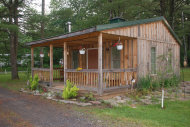Roosters, Hens & Chicks
Duckie Doodles
The Cluckin' "A" Dogs
The Farm House
Duck & Chicken House
The New Barn
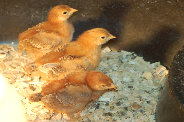
Pupskill Bay Lake
and the Grounds
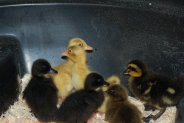

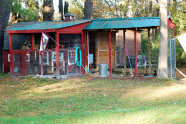
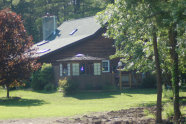
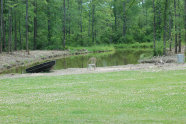
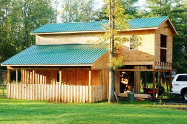
The Alpacas
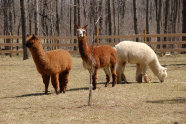
The "Bunny Brothel "

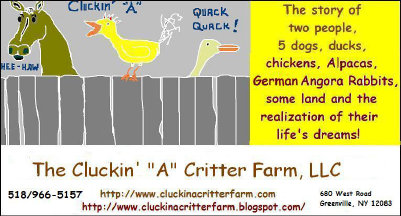
Alpaca Bean Fertilizer
What exactly are Alpaca beans?
An alpaca "bean" is another (and nicer) name that we folks who raise alpacas prefer to call their poop or manure, because healthy alpaca poop actually looks like little brown beans.
Guess what? This naturally pelleted part of an alpaca makes a terrific plant food and soil conditioner.
Commercial fertilizers are labeled for their N-P-K content, which stands for: Nitrogen, Phosphorus and Potassium (Potash). Alpaca "beans" naturally have all three primary nutrients, but in much smaller percentages than commercial fertilizers, which will not cause chemical burns to plants, so can be used immediately without composting. A second benefit to alpaca "beans" is that they contain secondary nutrients such as calcium, magnesium and sulfur that supplement plants feeding needs. Place a handful of pellets in a sprinkling can and fill it with water, allowing it to sit for a day and you have the natural equivalent of "Miracle Grow" for the plants in your garden or flowers around your patio. When the sprinkling can is empty, refill it until the "beans" are completely gone, and then place another handful in the can and you're ready to go again.
It is obvious that E.coli 157 has been in the news in recent years as a contamination passed from livestock to humans. INTERESTINGLY ENOUGH, alpacas are not known to carry E. coli 157! However, there are plenty of other germs that inhabit livestock manures and alpacas are no exception to that, SO... We recommend that you only place alpaca "beans" on a garden in the fall and throughout the winter, stopping 4 months prior to harvest time. In other words, never put "beans" on a planted garden which will be harvested for table food within 4 months. Always wash harvested underground crops well before eating.
We recommend using a few scoops in flower pots to make bountiful blooms and a wheelbarrow full will make trees grow big and strong. Place a truckload on your garden in the fall... And best of all....there is virtually no odor!
Use them when planting new landscape plants. Just mix the beans in the soil used around the plant.
There you have it.... THE ULTIMATE RECYCLABLE RESOURCE......
Over the past four years, we have experienced drought for three and this year lots of rain, wind, hail and even snow in mid September. The garden has pulled through beautifully.
I attribute our success to the poop from the lovely gentle alpaca. It is very balanced in nitrogen so when you apply it does not burn the garden but nurtures it. Just the right ingredients for great growing. It is very friable allowing the garden to drain even when you top dress the whole things, which is what we do.
The Alpaca Bean Pile...Eco-safe Fertilizer is perfectly safe to use on all your plant growing areas. The perfect solution for "Going Green".
$8.99 per five pound bag plus $10.95 flat rate shipping
